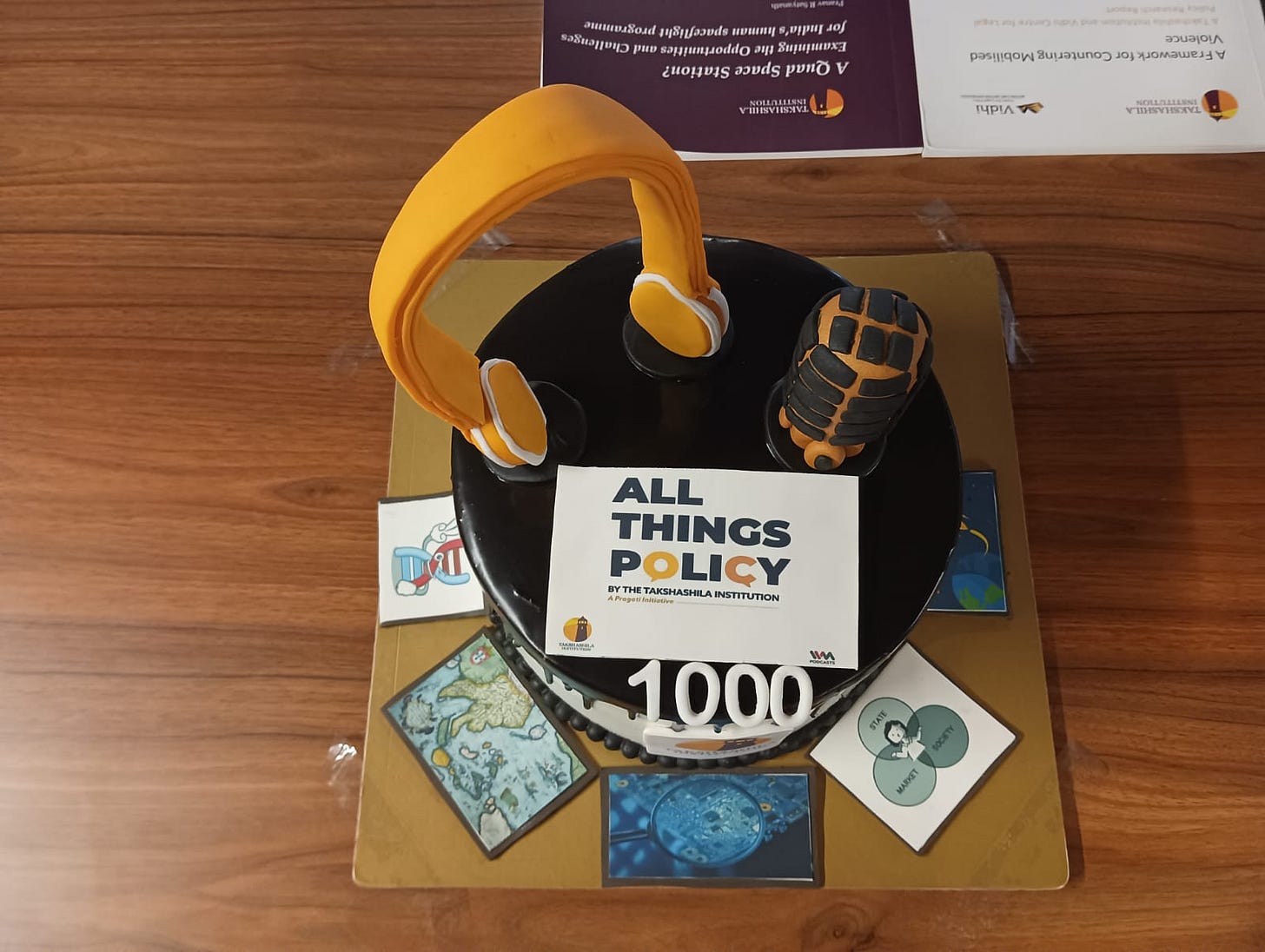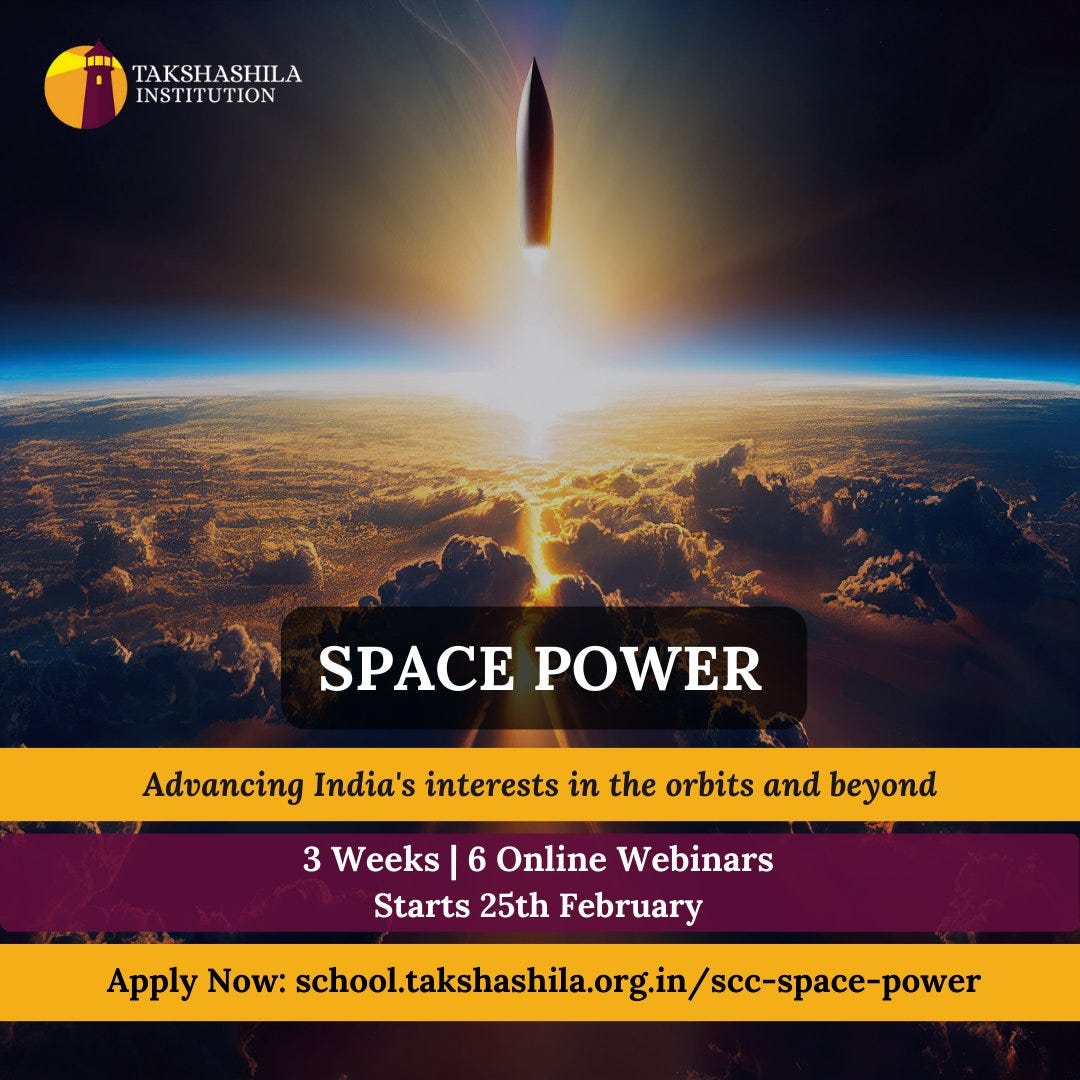All Things Policy: 1000 Not Out
Dear Reader,
Hope you are well. We are delighted to share with you that the 1000th episode of our daily public policy podcast All Things Policy is out today! Do listen and share among your networks.
In this edition of the Dispatch, we also bring to you our work on China’s Global Security Initiative, U.S.-China tensions over Taiwan, making public policy relevant to every citizen, and fixing India’s infrastructure issues.
All Things Policy @ 1000
Nitin Pai and Pranay Kotasthane discuss the macro-changes in the world order over the last three years since we began the All Things Policy podcast. They suggest certain frames of reference to better analyse the current world disorder. And tackle some listener questions! Listen here:
We celebrated the milestone at our office today, where we were joined also by Rohini Nilekani and Amit Varma!
China’s Global Security Initiative
Along with the Belt and Road Initiative (BRI) and Global Development Initiative (GDI), China’s Global Security Initiative (GSI) is a key foreign policy proposition put forth by Xi Jinping. However, GSI suffers from a lack of any measures or projects announced thereunder.
In our latest discussion document China’s Global Security Initiative: Undermining US Alliances or Quest for a New Security Architecture?, Manoj Kewalramani details the objectives, scope and policy implications of the initiative based on a review of the views expressed by the Chinese media, analysts and diplomats on the GSI.
Also, you can listen to Indo Pacific Circle’s podcast where Manoj Kewalramani unpacks some of the issues surrounding GDI and GSI;
U.S. & China: The Taiwan Question
Anushka Saxena writes in First Post on why U.S. and China are headed towards a collision course on the issue of Taiwan:
Chinese policies have invariably caused the stronger diplomatic and military posturing from the US. This has intensified the risk of a conflagration in the Taiwan Strait. For instance, as per a statement released by the US Indo-Pacific Command in December 2022, a Chinese PLAN J-11 fighter pilot performed manoeuvers dangerously close to an American RC-135 reconnaissance aircraft in the South China Sea. If not averted, its consequences could have been similar to the infamous Hainan incident of 2001, when a mid-air collision between American and Chinese aircrafts led to the loss of a Chinese pilot’s life. The US again responded to this development by sailing a warship, the USS Chung-Hoon, through a narrow corridor in the Taiwan Strait, on 6 January 2023.
Highway to Infrastructure Success
In his column for The LiveMint, Nitin Pai writes on what India the trifecta of behaviour, design and organisation which can make Indian infrastructure better:
When it comes to efficiency, safety and user experience of infrastructure such as roads, airports, railways, shopping malls, online services and so on, behaviour is only one vertex of a triangle. The other two important factors are design and organization. It is only when these vertices are optimized and in harmony do we get the best possible outcome. In other words, even the best behaviour won’t go far if the infrastructure is poorly designed or its use poorly organized. We need to fix all three.
Jugalbandi Between State, Society, & Market
In an interview with ThePrint, Pranay Kotasthane (co-author of Missing in Action: Why You Should Care About Public Policy) spoke about the public policy landscape in India and the need for better cooperation between State, Society and Markets in India.
Also, Pranay Kotasthane appeared on The Seen and The Unseen along with his co-author Raghu S. Jaitley and spoke on how public policy intertwines with our daily lives in myriad ways:
Special Credit Course on Space Power
The ability to use space for commercial, scientific and military purposes is a vital determinant of national power. Recent years have seen the rise of a global commercial space sector, growing lunar ambitions, and plans for interplanetary exploration.
The Special Credit Course on Space Power will provide an introduction to emerging issues related to space and how those could shape India’s interests, its opportunities, and the choices it makes. The course will cover the government and commercial space sectors, strategic affairs, and international governance.
The course is primarily designed to be useful for government officials, members of the armed forces, space entrepreneurs, lawyers, academics, policy professionals, as well as other individuals interested in outer space affairs. It will be conducted online only on weekends.
That’s all from us this week. Take care!








